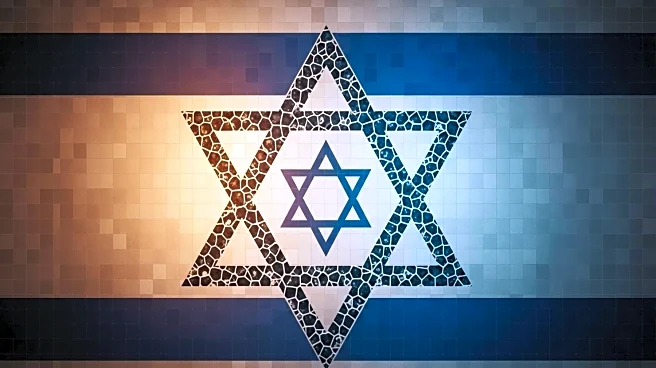What's Happening?
Shira Efron, a senior fellow at RAND, discussed the profound impact of the ongoing war in Gaza on Israeli identity during an interview with NPR's Scott Simon. The conflict, which began with Hamas-led attacks on October 7 two years ago, has left Israelis grappling with a changed security environment and international isolation. Despite initial support for military actions, the legitimacy of the war has waned both domestically and globally. Prime Minister Netanyahu's leadership is under scrutiny, with public dissatisfaction over his handling of the conflict and corruption charges. Efron highlighted the disconnect between Israelis and the harsh realities in Gaza, urging for increased humanitarian aid and a reevaluation of Israel's long-term security strategy.
Why It's Important?
The ongoing conflict in Gaza has significant implications for Israel's political landscape and its international relations. The erosion of support for the war among Israelis reflects broader concerns about the humanitarian impact and the country's diplomatic standing. Prime Minister Netanyahu's leadership is challenged by public discontent and international criticism, potentially affecting future elections and policy directions. The situation underscores the need for Israel to balance security concerns with humanitarian considerations, as continued isolation could impact its strategic alliances and economic partnerships. The call for increased humanitarian aid and a shift in governance in Gaza highlights the complex interplay between security and human rights in shaping Israel's future.
What's Next?
As the conflict continues, Israel faces critical decisions regarding its approach to Gaza and its international relations. The potential release of hostages following President Trump's ceasefire plan could alter the dynamics of the conflict. However, the Israeli government's policies and Netanyahu's leadership remain contentious, with possible implications for upcoming elections. The international community's response, including divestments and boycotts, may pressure Israel to reconsider its strategies. The focus on humanitarian aid and governance changes in Gaza could lead to diplomatic efforts aimed at resolving the conflict and improving Israel's global standing.
Beyond the Headlines
The war in Gaza raises ethical questions about the balance between national security and humanitarian obligations. The isolation faced by Israel highlights the challenges of maintaining international support while addressing domestic security concerns. The conflict also prompts a reevaluation of Israeli identity, as the nation grapples with its role as a 'light among nations' amid global criticism. The long-term implications for Israeli society include potential shifts in political priorities and public attitudes towards peace and security.












